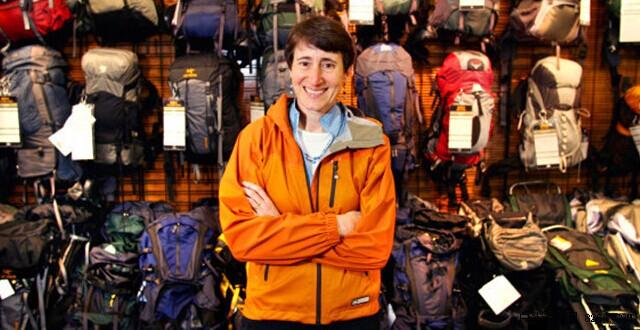Thrift In Eastern Europe, Second-Hand Clothing Importers Make Crazy Profits
A few years ago financial crisis It has caused heavy losses to central and Eastern Europe, but many second-hand clothing stores have sprung up. Even Western Europeans are compressing family financial expenses. Many people are starting to patronize discount stores such as "Primark". Wages in Eastern Europe are much lower than those in Western Europe. Second hand clothing Shop. As a result, many companies are getting rich by running second-hand clothing stores.

According to foreign media sources, second-hand clothing stores increased rapidly in Hungary, Poland, Bulgaria and Croatia. Bulgaria's second-hand clothing company mania opened a new store in Romania and Greece. In Hungary, in order to meet the rapidly growing consumption demand, Hada, a large second-hand clothing company, is going to invest 1 million 600 thousand euros to build an old clothing sorting hall. These companies have bought second-hand clothing from Western European countries, some of which are brand new clothes with labels. According to analysts, "from the year of 1995~2008, the income of people in Eastern Europe and central Europe has increased by one percentage point from the average of Western Europe every year, from 35% to 50%. After the economic crisis, this growth rate dropped sharply. Although the economy has grown greatly this year, there is still a long way to go before recovering to pre crisis levels. Last year, the country's second-hand clothing imports amounted to 56 million euros, more than 2 times that of 2008. Hada, which runs second-hand clothing, has 60 stores in Hungary, which is expected to account for about 1/3 of the country's market share. Next year, the company will invest 1 million 600 thousand euros to build a sorting hall in the east of Hungary, adding 150 workers, with a total number of 900 workers. The company imports 30~40 tons of second-hand clothing from Britain every week, with an annual turnover of up to 32 million 400 thousand euros. The company was founded at the beginning of the year as a family business, sorting in a village near the border of Ukraine. Secondhand clothes 。 Gioki Hatta, the founder, said, "at that time, my wife, my grandmother and my sister-in-law came to help sorting clothes." The company's response to the financial crisis is to close down stagnant shops and open new stores in areas with stronger purchasing power, including larger shopping plaza. "I think the crisis has made consumers learn to be frugal," he said.
In Poland, more than 40% of people often buy second-hand clothing. In 2013, the total number of second-hand clothing imported from the country amounted to 100 million euros, which was almost 6000 Euro million euros than the average in previous years. These secondhand garments are mainly from England, Germany and Scandinavian. Warsaw's Georgia Street is famous for its second-hand stores. More than a dozen secondhand shops are very close. In general, it is estimated that there are about 2.1 000 second-hand shops in the country in 2011. The prices of different stores vary widely, ranging from 30 kg (9 dollars) to 80 kg per kilogram.
In the capital Zagreb of Croatia, new second-hand clothing stores have sprung up in the past 10 years. Nina Belik, 53, runs the oldest second-hand clothing store in Zagreb. "Only one of us was 10 years ago, but now people are becoming more frugal. The number of second-hand clothing stores is growing rapidly, and the business of these stores is good," she said. However, the compression of household finances in Western Europe also affects the second-hand clothing business in Eastern Europe and central Europe. In addition, the owners of secondhand clothing stores are finding it difficult to find a good source of goods recently. "The British are getting poorer and poorer, and the clothes they are handling are not as good as they used to be," said Joe antanta, a second-hand clothing store owner in Warsaw.
- Related reading
- Collocation | 做女人一定要做精致的女人 今夏你精致了嗎?
- Collocation | 背心上衣+牛仔熱褲 清爽搭配扮靚夏
- Fashion makeup | 時尚精致的韓式百變妝容 你準備好了嗎?
- brand building | POOVE, China'S 500 Most Valuable Brand, Continues To Pilot The Youth Footwear Industry.
- Expo News | New Trend Of Internet + Clothing And Textile Industry Promotes Pformation And Upgrading Of Traditional Garment And Textile Industry
- Mall Express | Strengthen Terminal Consumption Experience POOVE Fourth Generation Terminal Image Upgrade
- Colorful circles | Are You Interested In Exotic Earrings?
- Show show | Men Wear No Men On This Week.
- Industry perspective | 新疆紡織服裝產業存在的問題及解決方案
- Professional market | 智能服裝蓬勃興起 可能將成為市場主流
- CCTV Exposure: Guangzhou'S Big Shoe City Sells Fake Leather Shoes.
- Zhejiang Leads The Country'S First Provincial Cross Border Electricity Supplier Policy
- 鞋子世界的長生軍——休閑鞋
- Returning To The Core Competitive Trend Of Children'S Clothing Industry
- 中國制造不斷升級 受外商肯定
- "Chinese Money" Is Hard To Make A Luxury.
- Leather Shoes Are Mixed Up In The Market To Teach You To Identify Leather Shoes (Three).
- 市場上皮鞋魚龍混雜,教你鑒別羊皮鞋(二)
- Leather Shoes Are Mixed Up In The Market To Teach You To Identify Pig Leather Shoes.
- What Are The Types Of Leather Shoes And Leather Shoes?
